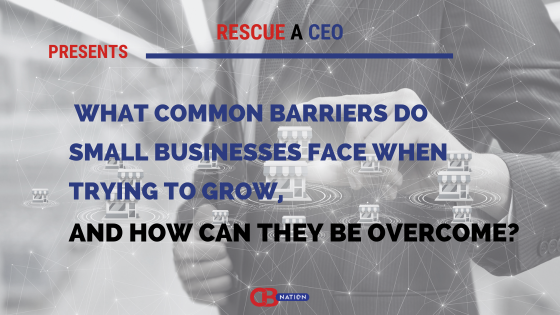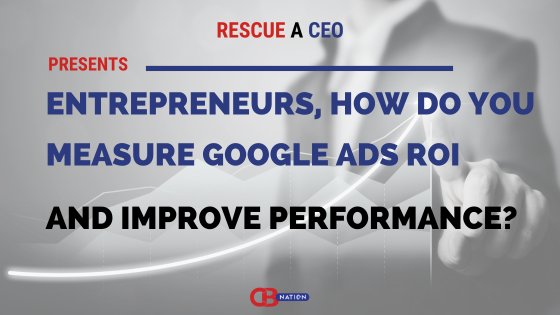Choosing a franchise can seem like a fast track to business success, but rushing into the wrong one can quickly turn into an expensive lesson. Many first-time franchisees focus on brand recognition or upfront costs, while overlooking deeper factors like long-term support, hidden fees, or whether the franchise model actually fits their lifestyle and goals.
11 Entrepreneur shares the biggest mistake new franchisees make when choosing a franchise, and how to avoid it
From doing thorough due diligence and understanding the fine print to assessing ongoing training and financial viability, we asked seasoned entrepreneurs and franchise experts to share what every first-timer needs to know before signing on the dotted line. Here’s what they said:
1. Skipping research

First-time franchisees often make mistakes by skipping research on a franchise’s business model, market potential, and performance, which can lead to misaligned expectations. They may overlook the competitive landscape, franchisor support, and total investment, including hidden costs. Many also fail to assess personal compatibility with the franchise’s values and operational demands. To avoid these mistakes, franchisees should review the Franchise Disclosure Document, seek expert guidance, plan finances, and align goals with the right franchise.
Thanks to Valentin Radu, Omniconvert!
2. Failure to review major documents

First-time franchisees often fail to thoroughly review the Franchise Disclosure Document (FDD), overlooking crucial financial and operational details that can lead to hidden costs and restrictive clauses. Another major error is neglecting research on the franchise’s financial stability and reputation. Location is equally vital, as even strong brands can fail in unsuitable markets. Entrepreneurs should analyze local demographics and competition and consult a qualified franchise attorney to ensure fair contracts and prevent future legal or financial setbacks.
Thanks to Nick Heimlich
3. Several mistakes

The biggest mistake new franchisees make is failing to recognize early red flags. Lack of transparency—such as withheld financial or operational details—often signals hidden problems. Misaligned brand values can also cause operational conflicts, while poor franchisor support, limited training, or weak marketing make growth harder. Entrepreneurs should question unrealistic profit claims, high staff turnover, and outdated business models. Thorough research and reputation checks help ensure transparency, reliable support, and long-term franchise success.
Thanks to Sonia Shwabsky, Kwik Kopy!
4. Going for weak options

Many new franchisees fail because they accept territories without proper evaluation, assuming brand recognition alone guarantees customers. Ignoring demographics, competition, and foot traffic patterns leads to poor performance. Before finalizing a site, conduct independent market research to understand local spending habits, competitor density, and traffic flow at different times. If options seem weak, wait for better territories or consult professional location analysts. Remember, even a strong franchise brand cannot overcome the disadvantages of a poor location choice.
Thanks to Justin Crabbe, Jettly!
5. Ignoring current owners’ experiences and financial disclosure documents

Many new franchisees rush into decisions, swayed by persuasive marketing rather than verified performance data or franchisee satisfaction. Ignoring current owners’ experiences and financial disclosure documents often leads to hidden costs and unmet expectations. Analyze profitability and potential expenses through interviews and independent research. Visit multiple outlets across seasons and consult franchise attorneys or accountants before signing. Careful due diligence ensures informed decisions and prevents costly surprises in future franchise investments.
Thanks to Dean Rotchin, Blackjet!
6. Two mistakes

New franchisees often underestimate total investment and overestimate quick returns. Focusing only on franchise fees while ignoring working capital, equipment, marketing, and royalty costs leads to financial strain. Many exhaust savings on start-up expenses, leaving no buffer for operations. Avoid this by creating 12–18 month financial forecasts, securing extra funding, and setting realistic break-even goals based on actual data. Maintain strong cash reserves for unexpected costs. True franchise success depends more on financial preparedness than enthusiasm.
Thanks to Richard Mews, Sell With Richard!
7. Assuming the brand alone ensures success

A common mistake new franchisees make is assuming the brand alone ensures success. While franchises provide established branding, owners must actively promote themselves and their team within the local community. Effective local marketing, positioning, and community engagement are essential to building credibility and trust. The most successful franchisees leverage the brand while creating a personal profile that resonates with customers. By combining brand strength with local influence, franchise owners can significantly boost business impact, reputation, and long-term growth.
Thanks to Lauren Clemett, The Audacious Agency!
8. Getting swayed by flashy presentations

Many first-time franchisees chase “safe bets” or get swayed by flashy presentations and corporate buzzwords like innovation or community. However, if the system is flawed or the culture mismatched, burnout follows quickly. The best strategy is to look deeper, speak with current franchisees, study daily operations, and assess real success potential. True success comes from alignment. When you invest in something that reflects your core values and authenticity, you attract the right people and build sustainable, long-term motivation and growth.
Thanks to Mick Owar, Primal Recovery!
9. Equating buying a franchise with gaining freedom

Many first-time franchisees mistakenly equate buying a franchise with gaining freedom. In reality, you’re purchasing a structured job with strict rules and limited creative control. Franchise systems dictate products, timing, and methods, leaving little room for innovation. If independence is your goal, build your own brand; if stability appeals, embrace the established model. Recognizing this distinction early prevents frustration, unmet expectations, and costly identity crises, ensuring you choose a path that truly matches your business ambitions and personality.
Thanks to Deepak Shukla, Pearl Lemon Consulting!
10. Lack of financial scrutiny

The biggest mistake new franchisees make is falling in love with the concept instead of analyzing real unit economics. Many get excited about big brands like Subway without asking if franchisees actually profit after fees, rent, and labor costs. Franchise selection shouldn’t feel like buying a hobby; it’s a business investment. Without financial scrutiny, owners risk working 70-hour weeks for minimal returns while franchisors collect steady royalties. Success comes from clear-eyed analysis, not emotional attachment to a brand name.
Thanks to Todd Bingham, Top Rail Fence!
11. Choosing franchises based on passion

New franchisees often err by choosing franchises based on passion rather than profit potential. Loving a concept, like a coffee cafe, doesn’t guarantee success without understanding local competition, market demand, and operational challenges. Smart investors treat franchises as business ventures, analyzing financial performance and market opportunities. Consult existing franchisees about daily responsibilities, cash flow, and support. The most successful franchisees align their skills with viable markets, ensuring long-term profitability instead of chasing hobbies or emotional attachments.
Thanks to Yury Byalik, Franchise.fyi!

















































 |
|